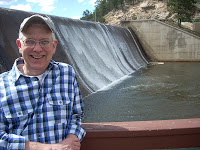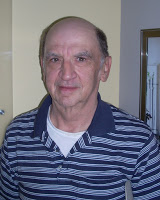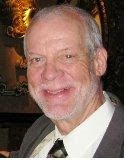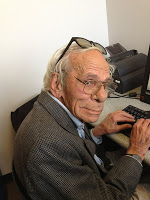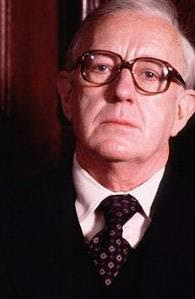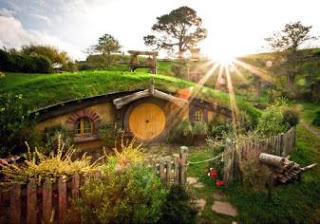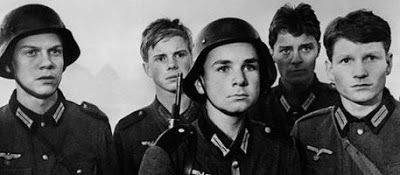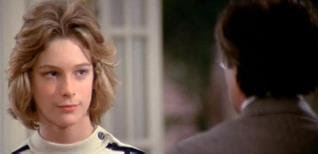Never had
to make a choice or decision because my mother always did that for me. That’s
what mothers do.
to make a choice or decision because my mother always did that for me. That’s
what mothers do.
The US
government decided I was draftable like all the other boys my age in 1943.
Faced with making a choice as to what branch of the service would want me, it
resulted in a trip to the US Army Air Corps office and enlisting in their air
cadet program. It seemed the best choice of all evils and besides I didn’t think
I’d fit nicely into a tight white sailor suit.
government decided I was draftable like all the other boys my age in 1943.
Faced with making a choice as to what branch of the service would want me, it
resulted in a trip to the US Army Air Corps office and enlisting in their air
cadet program. It seemed the best choice of all evils and besides I didn’t think
I’d fit nicely into a tight white sailor suit.
Footnote
here: Can you imagine me flying an airplane? I couldn’t even drive a car then.
here: Can you imagine me flying an airplane? I couldn’t even drive a car then.
The Air Corps was making all of our choices now having replaced Mama. As good fortune
would have it, the cadet program was oversubscribed, so the powers that be (or
were) scattered all of this wet behind the ears pubescent material to the
winds. The talented ones went to aircraft mechanics school. The rest of the class members, having
finished basic training in the wilds of Gulfport, were shipped off to a
military police contingent where they were assigned to 11 pm to 7 am guard
duty. Here we could reflect on our recently basic training that had taught all
of the little boys how to be good little soldiers, drink beer, smoke
cigarettes, strip down and reassemble a carbine, report on parade grounds at 6
am dressed only in your issue raincoat for “short arm” VD inspection (and he
wouldn’t show us his), learn the intricacies of KP duty, and checking the
scenery in the barracks shower.
would have it, the cadet program was oversubscribed, so the powers that be (or
were) scattered all of this wet behind the ears pubescent material to the
winds. The talented ones went to aircraft mechanics school. The rest of the class members, having
finished basic training in the wilds of Gulfport, were shipped off to a
military police contingent where they were assigned to 11 pm to 7 am guard
duty. Here we could reflect on our recently basic training that had taught all
of the little boys how to be good little soldiers, drink beer, smoke
cigarettes, strip down and reassemble a carbine, report on parade grounds at 6
am dressed only in your issue raincoat for “short arm” VD inspection (and he
wouldn’t show us his), learn the intricacies of KP duty, and checking the
scenery in the barracks shower.
Eventually
through discovery, familiarity, or unknowing choices, the appearance of latent
libidos or the right time and the right place, this boy found out what people meant
by the pejoratives “queer” and “fairy.” However there was a conscious effort
called ‘in denial’ to not own those words openly for some thirty to forty years
hence.
through discovery, familiarity, or unknowing choices, the appearance of latent
libidos or the right time and the right place, this boy found out what people meant
by the pejoratives “queer” and “fairy.” However there was a conscious effort
called ‘in denial’ to not own those words openly for some thirty to forty years
hence.
Dating and
girls:
girls:
It was a
blind date that never ended until she delivered an ultimatum. The morning of
the wedding the butterflies kept saying, “Do you really want this?” But, the
die was cast, no choice, just make the best of it — for fifty-five years. And there
were many good times and some not so good.
blind date that never ended until she delivered an ultimatum. The morning of
the wedding the butterflies kept saying, “Do you really want this?” But, the
die was cast, no choice, just make the best of it — for fifty-five years. And there
were many good times and some not so good.
Is chance a
choice or is choice a chance? A sunny day in June, crowds gathered at Civic
Center Plaza, and I chose to hang out on the perimeter of all the action
observing what PRIDE was all about.
choice or is choice a chance? A sunny day in June, crowds gathered at Civic
Center Plaza, and I chose to hang out on the perimeter of all the action
observing what PRIDE was all about.
Another
CHOICE, after all of this time it was becoming easier—attending a SAGE of the
Rockies conference. Meeting and learning to know there was a place for me in
this beautiful tribe; and I belonged. Knowing I could reach out and love freely
and openly. Finding I finally could come out of a closet I had lived in all of
these years. I realize now that I might be the only person that didn’t know or
suspect I was and am queer—in the most positive sense. My closet like many
others suffered from structural transparency.
CHOICE, after all of this time it was becoming easier—attending a SAGE of the
Rockies conference. Meeting and learning to know there was a place for me in
this beautiful tribe; and I belonged. Knowing I could reach out and love freely
and openly. Finding I finally could come out of a closet I had lived in all of
these years. I realize now that I might be the only person that didn’t know or
suspect I was and am queer—in the most positive sense. My closet like many
others suffered from structural transparency.
Now I am
faced with another CHOICE. Trying to determine is this ‘indiscriminate love’ or
‘unconditional love’ that I feel for all of you; and is there really that much
of a difference?
faced with another CHOICE. Trying to determine is this ‘indiscriminate love’ or
‘unconditional love’ that I feel for all of you; and is there really that much
of a difference?
© 11 July 2016
About the Author

